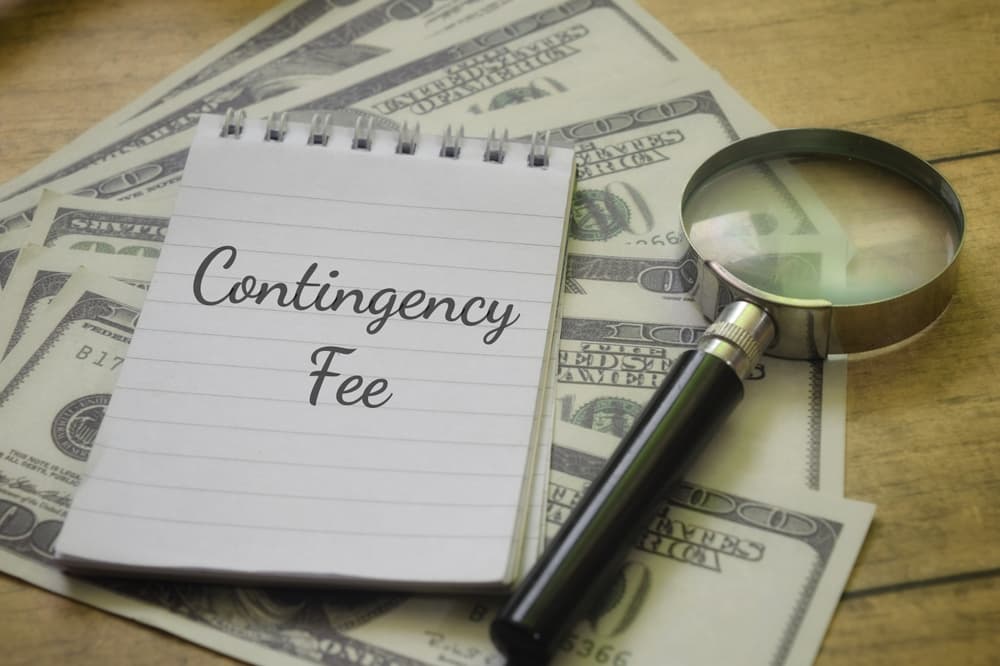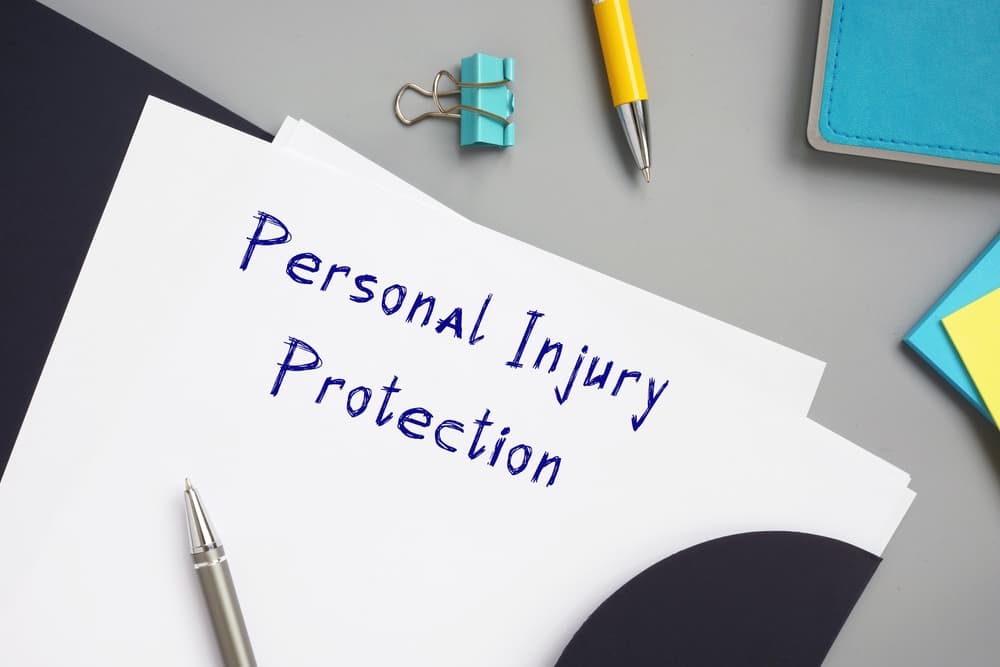If you’ve suffered an injury due to someone else’s negligence or wrongdoing, you may consider hiring a personal injury lawyer to seek compensation for your medical bills, lost income, pain and suffering, and other damages. However, one of the first questions many people have is: how much does hiring a personal injury attorney cost?
The good news is that most personal injury lawyers operate on a contingency fee basis, which means you won’t pay any upfront costs, and the lawyer only gets paid if they win your case. Let’s take a closer look at the typical costs involved in hiring a personal injury lawyer.
If you suffered an injury, never wait to schedule your free case evaluation with a personal injury attorney near you.
What Is a Contingency Fee Arrangement?

Most personal injury lawyers operate on a contingency fee basis. Under this arrangement, you do not pay any money upfront to hire the lawyer. Instead, the lawyer agrees to accept a percentage of any settlement or court award they obtain for you. If the lawyer does not win your case, you do not owe them any legal fees.
A contingency fee allows injured people to hire skilled legal representation even if they can not afford to pay an hourly rate or large retainer fee upfront. It also aligns the lawyer’s interests with yours since they only get paid if you do.
Are There Any Upfront Costs?
While you typically will not have to pay the lawyer any money to take your case under a contingency fee arrangement, there may be some costs involved in pursuing your claim that you will be responsible for.
These can include:
- Filing fees charged by the court
- Fees for obtaining police reports, medical records, and other documents
- Expert witness fees if your case requires testimony from medical professionals, accident reconstruction specialists, or other experts
- Deposition costs
- Trial exhibits and demonstratives
In many cases, your lawyer will advance these costs for you and deduct them from your share of the settlement or verdict at the end of the case. Ensure you understand your fee agreement and the costs for which you may be responsible.
No Fee If No Recovery
One of the most important things to understand about a contingency fee arrangement is that the lawyer does not get paid unless they recover money for you, either through a settlement or a court verdict in your favor. If your case is unsuccessful, you will not owe the lawyer anything for their time or the costs they advanced on your behalf.
While this makes hiring a lawyer very low risk from a financial perspective, remember that not every case is a winner. Just because a lawyer takes your case doesn’t guarantee a positive outcome. However, you can be sure that the lawyer believes in your case enough to invest their time and money to get a successful result.
Get a Fee Agreement in Writing
Whenever you hire a lawyer, you should always get a written fee agreement that clearly spells out the terms of the representation. A fee agreement for a contingency fee case should specify:
- The percentage the lawyer will charge as their fee
- Who is responsible for case costs and expenses
- How and when the lawyer will deduct their fee and costs from your recovery
- What happens if you decide to fire the lawyer or they withdraw from your case
Having a clear, written fee agreement can help avoid misunderstandings down the road. Don’t hesitate to ask questions if there’s anything you don’t understand.
Are the Fees Negotiable?
Some people wonder if the contingency fee percentage is negotiable. In general, most lawyers charge a standard percentage, which can vary a bit depending on the lawyer, the strength of your case, and your location. You may have some room to negotiate a lower percentage if you have a strong case or are willing to take on more risk yourself.
However, be wary of lawyers who offer rates significantly below the norm. While going with the cheapest option may be tempting, a rock-bottom fee can be a red flag. It may indicate that the lawyer is inexperienced, desperate for clients, or plans to put little effort into your case. Focus on finding an attorney with a strong reputation and track record, even if their fees are higher.
Maximizing Your Recovery
Most personal injury lawyers are invested in getting you the maximum compensation possible since their fee is a percentage of your total recovery. To give your case the best chance of success, it’s important to:
- Get prompt medical treatment and follow all of your doctor’s recommendations
- Avoid giving recorded statements to insurance adjusters
- Stay off of social media, and don’t discuss your case with anyone but your lawyer
- Keep track of all accident-related costs and losses
- Contact a lawyer as soon as possible to avoid missing any important deadlines
An experienced personal injury lawyer will communicate with insurance companies on your behalf, gather evidence to build your case, hire expert witnesses if needed, and aggressively advocate for your rights through settlement negotiations or a court trial.
Understanding Case Value
Many factors go into determining the value of a personal injury case, including:
- The severity and permanence of your injuries
- Your total medical expenses
- Whether you suffered any scarring or disfigurement
- The amount of your lost income to date and expected future earnings loss
- How your injuries have impacted your quality of life
- Whether the other party’s conduct was particularly egregious
- The strength of the liability case against the defendant(s)
- The amount of available insurance coverage
Your lawyer should give you a realistic assessment of your case’s potential value, but keep in mind that there are no guarantees. Valuing a case is difficult, and settlements and verdicts can be unpredictable.
Claims Against Government Entities
If your injury claim is against a government entity or employee, special rules may apply that can impact the cost of hiring a lawyer. Sometimes, you may need to submit an administrative claim by a hard deadline before filing a lawsuit.
It’s important to consult a lawyer with specific experience handling claims against government entities to ensure you follow the proper procedures and meet all deadlines.
Personal Injury Protection (PIP) Claims

In some states, car accident injury claims may be paid by your auto insurance under your personal injury protection (PIP) coverage, regardless of who was at fault for the accident. However, if your injuries are severe, this coverage may not be enough to fully compensate you.
A personal injury lawyer can determine if you also have a claim against the at-fault driver and whether it makes sense to pursue that claim. Most offer free consultations, so getting an experienced legal opinion on your case costs nothing.
Beware of Quick Settlement Offers
After an accident, the other party’s insurance company may contact you to try to get you to accept a fast settlement. However, the initial offer is almost always a “lowball” that does not fairly compensate you for your injuries. You should never accept a settlement, sign a release, or provide a recorded statement without first consulting with a personal injury attorney.
Remember, the insurance adjuster aims to pay as little as possible on your claim. Once you accept a settlement, you cannot ask for more money later if you need additional treatment or miss more work. A lawyer can deal with the insurance company for you and make sure any settlement offer is fair and reasonable.
What If Your Case Doesn’t Settle?
The vast majority of personal injury cases are settled without a trial. However, if the other side refuses to offer a fair settlement, you may need to file a lawsuit and take your case to court to get the full compensation you deserve.
Having an experienced trial lawyer on your side can make all the difference in this situation. Look for an attorney with significant courtroom experience and a track record of success trying cases in front of a judge and jury. Keep in mind that cases that go to trial may take longer to resolve, but you may end up with a higher recovery amount.
The Importance of Acting Quickly
It’s important to consult with a personal injury lawyer as soon as possible after your accident. Waiting too long can make it harder to gather key evidence and witness testimony to support your claim. There are also strict deadlines for filing personal injury lawsuits called statutes of limitations. If you miss the deadline for your case, you will lose your right to seek compensation entirely.
Most personal injury lawyers offer free initial consultations, so getting a trusted opinion on your case costs nothing. Even if you’re not sure if you have a claim, it’s worth reaching out to a few lawyers to discuss your legal options and ensure you don’t miss any important deadlines.
What to Expect During Your Case
If you hire a personal injury lawyer, they will handle all the paperwork, evidence gathering, and legal legwork for you. The process typically involves:
- A free initial consultation to discuss your case
- Your lawyer will investigate your accident and gather evidence like police reports, medical records, income loss documentation, and witness statements
- Your lawyer may consult with medical and financial experts to get opinions on your injuries, treatment needs, and expected damages
- Your lawyer will send a demand letter to the insurance company outlining your claim and damages
- Your lawyer will negotiate with the insurance company to try to reach a fair settlement
- If a settlement cannot be reached, your lawyer will file a lawsuit and begin preparing your case for trial
- Throughout the process, you will need to focus on your medical treatment and keep your lawyer informed of any developments in your recovery
While it can take many months or even a few years to reach a resolution, having an experienced lawyer on your side can alleviate stress and allow you to focus on your health and recovery.
Choosing the Right Lawyer for You
Choosing the right personal injury lawyer can seem overwhelming, especially if you’ve never hired a lawyer before. Some tips for finding a good lawyer include:
- Look for a lawyer who focuses on personal injury cases and has experience with your specific type of case
- Check the lawyer’s track record of case results and client reviews
- Make sure the lawyer has trial experience in case your case needs to go to court
- Choose a lawyer who is responsive, communicates clearly, and makes you feel comfortable
- Consider the lawyer’s reputation in the legal community
- Confirm that the lawyer works on contingency and is upfront about all potential fees and costs
You can ask friends and family for recommendations, use online directories, or contact your local bar association for referrals. Most personal injury lawyers offer free consultations, so consider meeting with a few to find the best fit before deciding.
Don’t Wait to Contact a Personal Injury Attorney
While the cost of hiring a lawyer may seem high, most personal injury lawyers operate on a contingency fee basis, which minimizes your financial risk. Under this arrangement, the lawyer only gets compensated if they recover money for you, and their fee comes out of that recovery.
Of course, a lawyer is not a miracle worker, and there’s no way to guarantee a particular outcome in your case. However, having an experienced personal injury attorney can significantly improve your chances of getting fair compensation for your injuries and losses. With contingency fees, getting legal help for your case is attainable.
If you’ve suffered an injury in an accident caused by someone else, don’t hesitate to contact a personal injury attorney for a free consultation. Working with a knowledgeable lawyer can help ensure your rights are protected and you receive the maximum recovery possible.
Remember, every case is unique, so getting a personalized case evaluation is important. Reach out to an experienced personal injury lawyer today to learn more about your options for seeking compensation.
 Calls Answered 24/7
Calls Answered 24/7









